Chip Conley, founder of Joie de Vivre and former Airbnb executive, reflects on the dynamics of age, wisdom, and curiosity in the ever-evolving world.
In this Legends interview, Conley shares his experiences challenging conventional norms in the hospitality industry, navigating the dot-com boom and bust, and embracing the role of a “modern elder” at Airbnb.
Conley offers a thought-provoking exploration of the ways curiosity and wisdom intersect. In a world that’s rapidly changing, discover why being open to new mindsets is not just an option but a key to longevity and happiness.
CHIP CONLEY: When I hear the term, “Okay, boomer,” I sort of feel like there’s someone with their hand out, maybe a millennial or a Gen Z person saying, “I’ve heard enough, boomer.” Often, “Okay, boomer,” means someone older is saying, “Hey guys, you youngsters, here’s how the world works.” And if I was a young person, I’d say, “Dude, that is how the world worked.”
We live in an era where people are living longer, power is moving younger, and the world is changing faster. So if you are not in a place where you’re ready to bring on new mindsets, then you’re in the process of dying.
My name is Chip Conley. I founded a company called Joie de Vivre which is now a Hyatt brand. Soon after that, I helped Airbnb to become the most valuable hospitality company in the world. I’m a bestselling author, my most recent book was “Wisdom @ Work: The Making of a Modern Elder.” And I’m a big believer in the idea that we can learn our whole lives.
Curiosity is a way of being and thinking that gets sort of beaten out of us. But curiosity is one of the most significant variables associated with living a longer, happier life because curiosity is really the taproot for learning. If you’re curious, you’re gonna learn.
So when I started my boutique hotel company, Joie de Vivre, I was 26 years old, and I was curious: Why are all hotels so boring? Everything was predictable. The nicest hotels were really conservative and expensive, and the inexpensive hotels were the kind of place that you didn’t feel comfortable getting under the sheets.
And so my curiosity has helped me in rethinking some of the conventions of the business world. And I studied people like Herb Kelleher at Southwest Airlines, but especially Richard Branson, the ultimate rebel business leader. So I felt like I had the fuel of purpose and meaning behind me, even when people were telling me I was crazy.
My first hotel was a hotel called the Caravan Lodge. It was sort of infamous as a pay-by-the hour motel. In other words, a “no-tell, motel.” It was in a bad neighborhood. It was sort of a cool, funky motel from like the 1950s. The bottom line was this had failure written all over it. I had to rename it The Phoenix and I decided our primary customer was gonna be rock and roll bands or musicians or creative types. We said we were our crossroads for the creative. It succeeded partly, because it was very unconventional.
I came to realize that my passion and my curiosity were really my competitive advantage. It was 1987 that I bought my first hotel, and it was three and a half years later that I got my second and my third, and then it was another three and a half years until I got my fourth. And from there, we grew really quickly, two, three or four new hotels a year until we got 21 hotels. So it’s 2001, and Joie de Vivre is now the largest hotel company in the San Francisco Bay area. We were on top of the world because the prior five or six years had been, been dot.com boom- and then came the bust.
NEWS ANCHOR 1: ‘Market’s become increasingly nervous.
NEWS ANCHOR 2: There’s a fear of crash.
NEWS ANCHOR 3: These losses will affect us all.’
CONLEY: And 9/11 and a recession and SARS and basically San Francisco Bay Area became the worst hotel market in the United States- and I had all of my hotels in that basket. That was a hard time. I was desperate in need of wisdom.
I went to a local bookstore to the self-help psychology section of the bookstore, and that’s where I got reacquainted with Abraham Maslow’s work. He was the one psychologist, that I learned in college that I felt like had something to teach me, and he talked about self-actualization or being all you can be.
I sat there on the floor of the bookstore reading one of his books and realizing that we have some physiological and safety needs, these survival needs, and then we have social belonging and esteem needs, more like success needs. And then at the top of the pyramid, we have our transformational need of self-actualization.
That helped me to see that “Wow, our employees have a hierarchy of needs our customers have a hierarchy of needs, and so do our investors.” It might seem a little strange to be a CEO of a company and to go study psychology, but I did believe down to my toes that the most neglected fact in businesses is that we’re all human.
And so I ended up creating something called the Peak Theory, and for the next four or five years, we tested it in this living laboratory of my company, the idea of a psychology theory applied to a company- and it worked. Over the course of the next five years, we more than tripled in size and we became even more successful in the San Francisco Bay area, and we grew into the whole state of California.
Learning how to incorporate the kinds of things that you don’t necessarily read in a normal business book or studying things that were not exactly relevant to being the CEO of a hospitality company have helped me to think out of the box.
What I learned was, what people need more than anything during the most difficult times is to actually think creatively, to be able to take a deep breath and feel like we’re gonna get through this.
The most important thing to remember as you get older is you need to be willing to evolve. And to evolve means you’re willing to change, you’re willing to be in transition, you’re willing to have an openness to shifting your identity and maybe even what you’re learning.
Some of the qualities that made us successful in our 20s will not necessarily make us successful in our 40s. So part of our process is to evolve and molt those identities or ways of being that aren’t working for us anymore.
The reason I started Joi de Vivre was I love the creativity and the freedom, but by the time we were to 52 hotels, I realized I didn’t have a lot of creativity or freedom in my life anymore.
So when I got my first call from Brian Chesky in early 2013, Brian told me about Airbnb and I told him that seemed like a really stupid idea. I didn’t think it was gonna be very successful. And then he told me, “Well, it is successful. It’s growing globally, and I want you, Chip, to help us democratize hospitality.” He said he wanted to learn from me. What I learned over the course of time was I was gonna learn from him as well.
In joining Airbnb, I was prepared in certain ways. Number one is, I understood the hospitality and travel business, and no one in the company did. They were disrupting an industry they didn’t understand, but I was completely ill-prepared in all kinds of other ways.
I was joining a tech company at age 52, and I’d never been in a tech company before, and I didn’t understand the lingo. I was a boomer joining millennials. More than anything I had to get used to the idea I wasn’t the CEO, but instead I was the guy serving and doing my best to help the three founders of Airbnb become great leaders.
I soon came to be known as the “modern elder at Airbnb.” A modern elder is someone who’s as curious as they’re wise, and they’re smart enough to know what the situation needs. A little more curiosity or a little more wisdom.
Many people who are older think that what young people want is they want that wisdom that you have as an older person, but actually that’s what happens last. The most important thing is having them see you on your learning curious journey; through humility and through vulnerability, showing that you are on a journey of learning your whole life, such that as a modern elder, you are this perfect alchemy of curiosity and wisdom.
NARRATOR: Get smarter, faster with videos from the world’s biggest thinkers. To learn even more from the world’s biggest thinkers get Big Think + for your business.
©️Bigthink.com

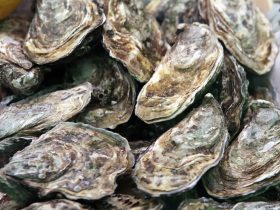





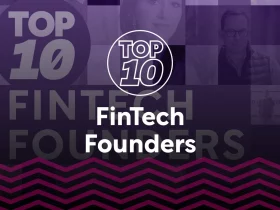

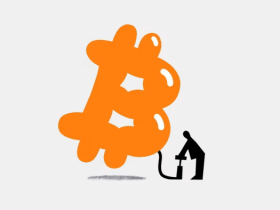

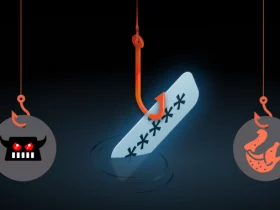





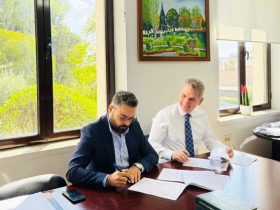
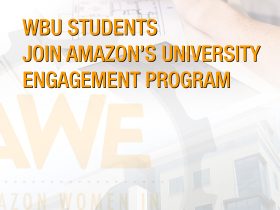



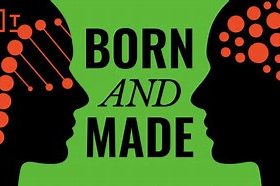
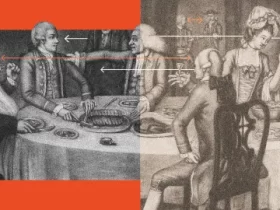
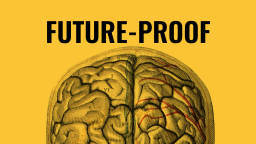



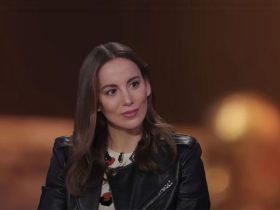
Leave a Reply